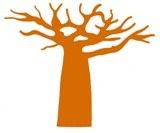

It takes two for tango. It takes at least two for a peaceful settlement.
Because,as we all know, each side needs a strong pillar, a personality firmly anchored in its constituency and highly regarded for his/her unifying power, the charisma and credibility. Without such a beacon of identification and encouragement on both sides there can be no true negotiation, no lasting solution. If, in addition to his/her "domestic strength", each pillar also has the capacity to change perspectives and to develop an understanding for the other side, then the mediation process is really off for a good start.
It takes two. Sometimes we need to be reminded of such basics. For me the theme got reactivated last week when the russian president dmitri medwedew was in berne for a two day state visit on his way to the UN general assembly and to the meeting of the G8. He made a beautiful gift to our city. He brought along a couple of young bears, misha and masha (see the picture above). The bear being one of the archaic symbols of berne, this gift was a charming gesture, and the bernese were delighted.
Beyond symbolism, I was attentive to the political messages of medwedew. Just a few days before the visit, president barack obama had announced that the US would not persue their plans to build a missile shield in eastern europe any further. So in one of the interviews president medwedew gave to the swiss media, he was asked how russia would respond to the american move. This is what he replied: "with barack obama we really would like to construct new relationships". And he went on to explain:"when our partners listen to our concerns then we will also meet their concerns more attentively ".
The power of listenting. It takes two.
We can find many examples of this basic prerequisite, all around the globe. Take turkey, the quest for a peaceful solution with the curds. There are signs of opening now due to new initiatives being fostered by the two pillars. In a recent speech, prime minister erdogan expressed his feelings for the suffering of the mothers who lost their sons in the conflict. He showed empathy for the mothers on both sides. It appears that the imprisoned leader of the curds, abdullah öcalan, is also preparing a new move.
The power of empathy.
Or take zimbabwe, where the two pillars, mugabe and tsvangirai, have finally agreed to cooperate in a highly risky arrangement of power sharing. How is this possible after all the atrocities? How can tsvangirai recognize the importance of his opponent as a "stabilizor"? He speaks of the fragile beginnings of a personal relationship. "As you know I have gone through some personal tragedies in recent times. And this man has shown empathy. So I realized that there is a personal factor...".
Fragile beginnings. It takes two. As mediators we must always be aware that both sides must be empowered. As our baobab motto says: responding to conflict through empowerment and recognition.
Many thanks to dmitri medwedew for his wonderful gift. Let's hope that our grandchildren when they go and see the two bears will also be told the story of the two pillars and that it takes two for peace.
Yours in mediation
geri baobab





